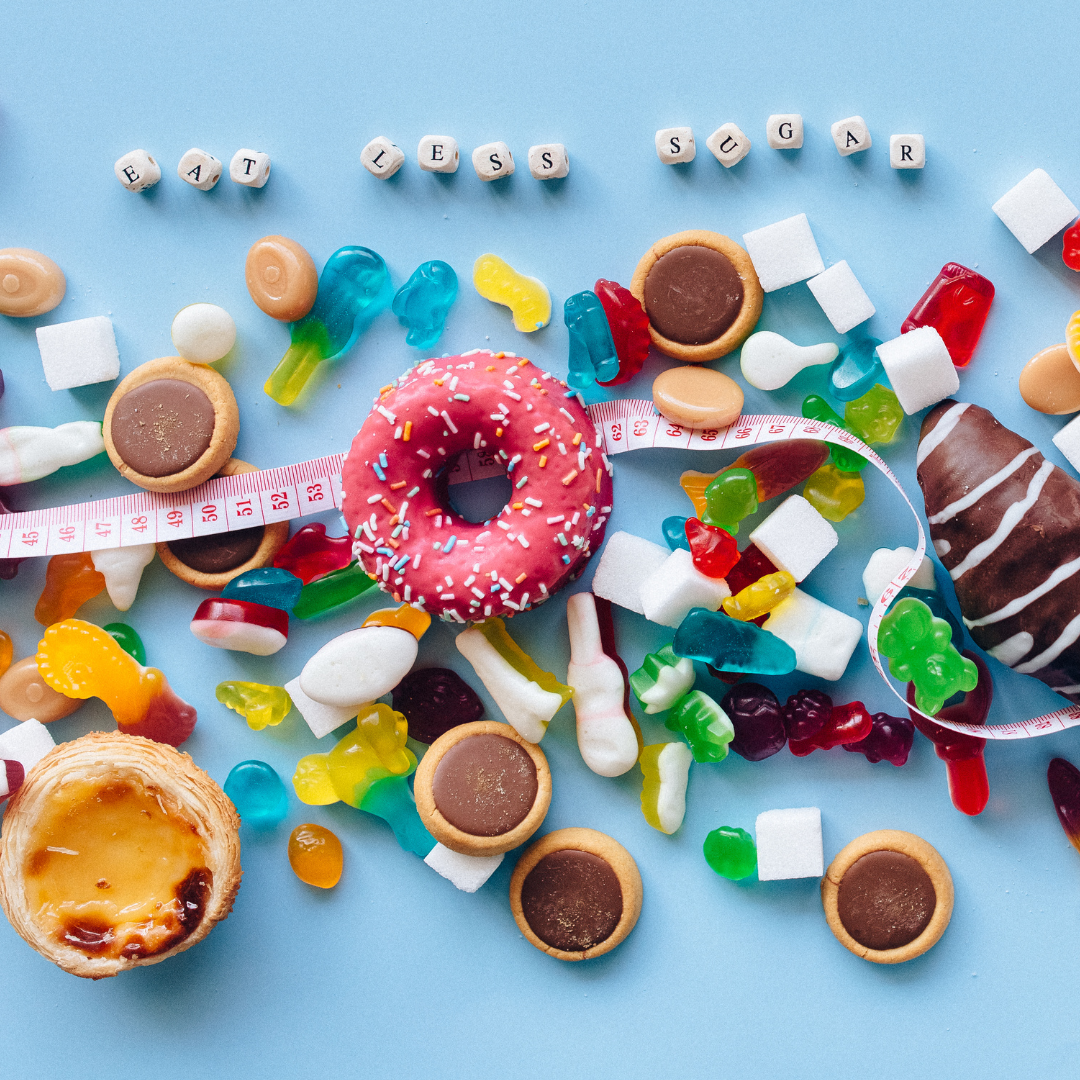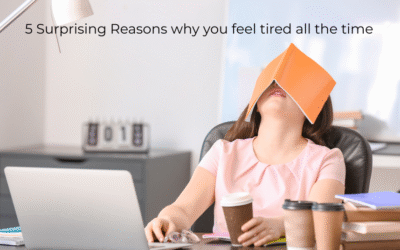Many people have been telling me that they don’t want to live a life where they constantly must think about whether something is good for them or not. They tell me, they want to eat a piece of cake when they fancy it and not restrict themselves. While they do understand that it might not be the “healthy” option, they also don’t want to live a life where they need to consider the impact of everything they eat. Also, and this is proven, often restrictions can lead to even stronger cravings.
I get it. I love my food too, and I don’t want to restrict myself either:
However, there is a difference between sometimes enjoying something really nice and giving in to cravings every time they hit.
There are many things in our lives where we simply cannot just do what we feel like. We constantly have to make decisions about what we do and the possible consequences.
How many times do you wake up and feel you’d rather stay in bed? But you’ve got to go to work and if you don’t – you’ll be in trouble. You might get away with it once, calling in a sickie, but not every time.
How many times are you really stressed out and you would just love to scream and throw a tantrum? You might do it – maybe in your car or somewhere where you’re alone – but certainly not in public. Or if you did, you might need to deal with some consequences.
How often do you want to tell someone that they are annoying you right now, but you can’t because it would not be appropriate or that person is your boss?
How often do you just want to get out of your car in a traffic jam and abandon it? Or use the bus lane to overtake everyone. You could get away with it, or you could get a fine.
There are so many things in our lives where we cannot do what we feel like doing.
But food is a great exception.
Food is readily available for most of us. Food can release “Happy Hormones”, food can release “Calming hormones” and food can give us (short-term) pleasure in that moment.
And usually, eating food does not have an immediate consequence – unless of course, you eat something you are highly allergic too. Even if you are diabetic and eat something extremely high in sugar, your insulin, your meds or something will come in to the rescue. You might feel tired or wired, sick or bloated, nauseous or itchy. Most of the times, it’s a long-term concern: If your blood-sugar is constantly high, if your pancreas constantly has to release insulin, if you are over-eating, you won’t lose weight etc. On the other hand, there are many people who don’t eat certain foods because they know they’ll feel bad, sore or miserable afterwards. And I am sure, everybody has certain foods that they don’t eat simply because they don’t like them! Or because it’s against their principles. Vegans probably rarely crave a grilled beef steak.
Also, there are certain scenarios where you wouldn’t eat. There are places where eating is inappropriate, you might not want to tuck into a steak when you visit someone in hospital, you might not want to tuck into your cake while you are seeing your nutritionist who are paying to help you lose weight.
So, we already are familiar with the concept that we cannot and do not eat EVERY time, we fancy something. What I would like to explore here though is the sentence I heard a few years ago at a conference for Nutritional Therapists (and unfortunately, I cannot remember who it was).
If eating does something for you other than stilling your hunger or giving you nutrition, then you are using food as therapy!
This is especially the case when you crave something really badly.
Of course, you can really enjoy and savour a meal for its flavours and tastes, but in that case, you usually set out to go for a nice meal or prepare a nice meal and then eat it.
Craving or fancying foods is something that happens more spontaneously: You see an ad and you want something. The sun is out and you want ice cream. You go to the cinema and immediately want popcorn. You walk past a bakery and the smell makes your mouth water. You see something on the menu that you used to love as a child. You had a stressful day at work and you look in your fridge and the healthy option does not look appealing and you go for a pizza instead.
There is usually an outside trigger. You usually want that particular food because there is some emotional connection, and not because you are hungry or because you had planned to eat it.
I am not saying you should never have a piece of cake when you fancy one, but what I would suggest – when cravings hit – is:
- Identify the trigger
- What emotion do you think you want to feed? When you are stressed, food gives you comfort.
- Does the food give you long-term, sustainable comfort? Or is it short-lived and you feel guilty or even worse afterwards?
- What are the longer term consequences?
- Can you do something else to soothe yourself, to de-stress, to distract even?
- Change what you call it. “I don’t want to restrict myself!” – Do you really restrict yourself by not eating something that clearly is not good for your body? I used to smoke and I kept telling myself that nicotine helps me de-stress. But once I realised that I was only feeding my addiction and that this is why I’m feeling better – and not because of the nicotine itself – it was easy to stop. By eating something that you don’t really need, you are just feeding some other emotion that you are not “feeding” or “nourishing” in your life.
- Stop before you give in, take a breather and make a very conscious decision.
- You can also check, can I make this cake (or whatever) a little bit healthier? Could you add some protein, i.e. nuts with it? Could you make sure to have a big salad before or after? Can you add some veggies to it (for example, if you fancy a pizza)
- And then stand by this decision and be ready to face the short or long-term consequences.
- And then eat it very slowly and really savour every single bite of it. (Most of the time, when we fancy something, we eat it really quick – as if to avoid that somebody else can see us doing this sneaky little “sin”)
Have you heard the saying: “Between stimulus and response, there is a space. In that space is our power to choose our response. In our response lies our growth and freedom.”
There is a space between giving in to cravings and your response to eat. Take responsibility of the potential consequence, then it becomes a “choice”. And make your choice count. Don’t just give in to cravings, but fully stand over it and enjoy. Or else, become stronger, by sometimes saying “no”. The more often you do, the easier it gets. And you will less often think of it as “restriction”.
A lot of my work as a health coach is identifying where my clients struggle to implement healthy recommendations. For example, if I work with a client who often eats foods that she or he doesn’t really want to eat, or knows that it’s not good for them, we explore what happened beforehand. We explore the triggers for the non-hunger eating. We explore mindset and challenge existing beliefs (I can’t eat any vegetables!”).
I don’t tell my clients what to do or not to do. I can educate about certain aspects and make certain suggestions, but my main work is finding ways with my clients where they feel they are achieving something and where they feel that they are feeling better and healthier.
Why not book you Health & Energy Review Call with me today and see how and if I can help you!




